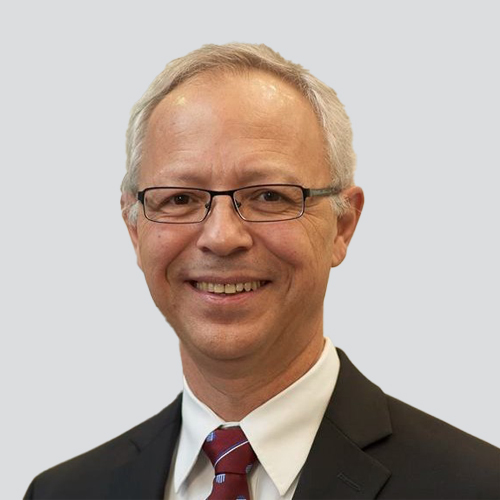
Our Office
Plaza Asia 18th Floor - Zone D
Jl. Jend. Sudirman Kav 59
Jakarta Selatan, 12190
IndonesiaPhone : +62 21 51512477
Facsimile : +62 21 51512478
Email : [email protected]

Close

![]()
Plaza Asia 18th Floor - Zone D
Jl. Jend. Sudirman Kav 59
Jakarta Selatan, 12190
Indonesia
Phone : +62 21 51512477
Facsimile : +62 21 51512478
Email : [email protected]


This (PVT) class will focus on the advanced and key topics of reservoir fluid properties, fundamentals, practical measurements and workflows. In the class, we will emphasize use cases and various examples including modern PVT report reviews as well as the key use-case related elements of equation of states (EOS s) that are often shared in our industry, especially in relation to reservoir models and other tools that use the PVT data.
In addition, we will give a broad view of the new developments in all elements of the development cycle, including exploration, reservoir and production management, EOR/IOR and even CO2 sequestration. As the complexity of fluids and the reservoir conditions become more challenging, progress in the computational area is also being made, such as, new EOS models and computational techniques, advanced characterization methods, etc. Therefore, complex fluids and their implications will be inherently part of this class.
One of the new topics that we will also introduce is the use of data-centric/machine learning methods in the area of hydrocarbon fluid properties

Director at Interaction of Phase Behavior and Flow (IPB&F) Consortium and Co-Director of CCS Consortium, University of Houston
SHORT PROFILE:
Prof. Birol Dindoruk, Ph.D. a well-rounded figure with his 25 years of working experience in Global Shell and bp, 25 years professor at University of Houston, co-founder of 2 international CCUS society, and he is also part of the CCUS Consortium in the US.
Get our special bundle price when you register for both the forum and short course!
By joining this short course you will gain insights from Prof. Dindoruk’s years of experience in the field and network with like-minded individuals.
Are you ready to level up? Let’s make the most of this opportunity and register now https://iiccsforum.com!
1. Introduction
2. Computational Aspects
3. Introductory Examples/Exercises: Compositional Data and Fluid Characterization
4. QC and Tuning (Recipe/Methodology): Justification and how to start tuning process
5. Compositional Grading
6. OBM Contamination
7. Emulsions
8. Viscosity models
9. CGR Correlations and Applications
10. New Developments: Miniaturization, Pore Proximity, Life Cycle Management, MD, Data Driven/Hybrid Models (time permitting)
11. MMP/MME: interaction of phase behavior and flow (time permitting)
Objective is to enable the participants with the following skills:
General Objectives (repeated in the value statement as well):
After the course we expect the participants:
Intermediate to Advanced
They can use the outcome/learnings right away for their day to day work. In addition, the justification for the data acquisition and/or filling the gaps in the data and being able to assess the current and future needs will be quick wins for the participants. In addition, we will share info on the new progress made in various fronts in this line of business.
General Objectives:
After the course we expect the participants:
Benefit:
As PVT is one of the pillars of Petroleum Engineering however the below individuals will benefit the most from the course:
1. Introduction
• Why do we need fluid data: well testing, in place volumes, material balance equation, etc
• Classification of Reservoir fluids: Black oils to volatile fluids to dry gases and Volumetric/PVT experiments
2. Computational Aspects
• Black oil & gas correlations, Definitions: API, SG (gas & oil), Bo, Rs, Pbp, Gas Gravity, Z-factor etc.
• Machine learning and data-centric models
• Fluid Properties Fundamentals (“Thermodynamic Aspects”- EOS formulas, underlying assumptions, reasoning etc), and HC characterization: SCN groups & implications
• EOS Applications and their use
3. Introductory Examples/Exercises: Compositional Data and Fluid Characterization
• Review of modern PVT reports & QC: Essential data/experiments
• Data Use: Measured data/Key data
• CN distribution and its implications
4. QC and Tuning (Recipe/Methodology): Justification and how to start tuning process
• Exercises (oils and condensates): Various classes of fluids/report formats – (instructor driven), Tuning/Regression, Interfacing with other packages
5. Compositional Grading
6. OBM Contamination
• ΟΒΜ Contamination and decontamination
7. Emulsions
8. Viscosity models
9. CGR Correlations and Applications
10. New Developments: Miniaturization, Pore Proximity, Life Cycle Management, MD, Data Driven/Hybrid Models (time permitting)
11. MMP/MME: interaction of phase behavior and flow (time permitting)
Objective is to enable the participants with the following skills:
General Objectives (repeated in the value statement as well):
After the course we expect the participants:
Intermediate to Advanced
They can use the outcome/learnings right away for their day to day work. In addition, the justification for the data acquisition and/or filling the gaps in the data and being able to assess the current and future needs will be quick wins for the participants. In addition, we will share info on the new progress made in various fronts in this line of business.
General Objectives:
After the course we expect the participants:
As PVT is one of the pillars of Petroleum Engineering however the below individuals will benefit the most from the course:

